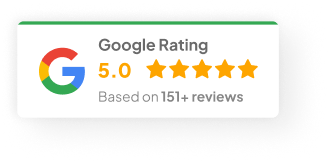17 Feb 25
Is Javascript Hard To Learn?
Alright. If you’ve dipped your toes into the world of coding, you’ve probably seen JavaScript pop up everywhere. Websites. Apps. Even the occasional toaster seems to run some kind of JavaScript these days (okay, maybe not the toaster, but you get the idea).
But is it actually hard to learn? That’s the real question. I’ve been in this game for over 20 years, and I’ve seen plenty of people either fall in love with JavaScript—or pull their hair out. Let’s unpack it properly.
Why JavaScript Stands Out
JavaScript’s like the Swiss Army knife of the web world. It works both in the front-end (what users see) and the back-end (where the logic happens). Thanks to Node.js, you can literally build an entire app—top to bottom—without ever switching languages.
I’ve worked on projects where a small startup built their whole MVP with nothing but React (front-end) and Node.js (back-end). Quick, lean, fully JavaScript.
And because it’s everywhere:
-
All major browsers run it.
-
Most interactive elements on a website rely on it.
-
Frameworks like React, Vue, and Angular are built around it.
-
Major companies—Netflix, PayPal, LinkedIn—run huge parts of their stack on it.
The Headaches Beginners Face
Now, let’s not sugarcoat it. JavaScript’s not all rainbows and unicorns. If you’re brand new, there are a few hurdles:
1) Syntax Can Be Weird
The { }, the (), the ; — it feels like you’re trying to write hieroglyphics at first. And the flexibility? Sometimes it’s too flexible. There are ten ways to do one thing, and figuring out which one to use can drive you nuts.
2) Asynchronous Stuff Is Tricky
You write one piece of code. You expect it to run top to bottom. But suddenly, some parts just… don’t wait. That’s async programming. Dealing with Promises, callbacks, and async/await can melt your brain when you’re starting out.
3) Event-Driven Logic Feels Like Herding Cats
Most of what JavaScript does is in reaction to something: a button click, a page load, a mouse movement. You end up writing code that waits for stuff to happen—and it can get messy fast if you’re not careful.
4) Browsers Don’t Always Play Nice
You write code. It works perfectly in Chrome. You open Firefox. It breaks. Then Safari throws you another curveball. Cross-browser quirks are real, though thankfully, modern browsers are getting better at staying consistent.
How To Get Started Without Losing Your Mind
Look—you don’t need to master everything on day one. The key is to build a solid foundation first:
-
Variables (
let,const,var) -
Functions (normal, anonymous, arrow functions)
-
Loops (
for,while,forEach) -
Arrays and Objects
-
Simple DOM manipulation (change text, add buttons, etc.)
When I trained a junior dev back in 2018, we spent the first month just messing with basic DOM manipulation using plain JavaScript and Chrome’s DevTools. No frameworks. No libraries. Just pure JS. It worked.
Once you nail the basics, you can slowly ease into the deeper stuff like:
-
Promises & async/await
-
Closures
-
Event loops
-
Higher-order functions
Why JavaScript Isn’t As Scary As It Looks
Honestly, a few things make JavaScript much easier than a lot of other languages:
1) Massive Community
There’s always someone who’s hit the same issue as you. Stack Overflow, GitHub, Discord servers, Reddit threads—it’s all there. Got a bug? Someone’s probably already fixed it.
2) Endless Learning Resources
From MDN’s official docs (which I still reference weekly) to interactive platforms like:
-
freeCodeCamp
-
Codecademy
-
Wes Bos’s tutorials (highly recommend his JavaScript 30)
You’re spoiled for choice.
3) Immediate Feedback
Write some code, open your browser’s console, and boom—you see the results. You don’t need a fancy setup to start tinkering. That instant feedback loop helps a lot when you’re learning.
The Modern JavaScript Advantage
The JavaScript I learned in the early 2000s? Rough. Today’s JavaScript? Much better.
-
ES6+ updates gave us arrow functions, destructuring, template literals—stuff that makes code way cleaner.
-
Frameworks & libraries like React, Vue, and Angular do the heavy lifting.
-
Node.js makes full-stack development with one language completely doable.
If I had these tools 15 years ago, I reckon my learning curve would’ve been half as steep.
So… Is It Hard?
Here’s my take: it’s challenging, but not hard-hard.
It’s way friendlier than something like C++ or Java. The ecosystem’s mature. The support is there. And honestly, you can build something meaningful pretty early on.
But yeah, expect to wrestle with async stuff. And don’t be shocked if you write some code that works one day, and mysteriously breaks the next. That’s part of the ride.
Want My Blunt Advice?
If you’re thinking of learning JavaScript, just start. Build something simple. A calculator. A to-do list. Mess around with your browser console.
Then ask yourself: What’s one small project I can build next to level up?


